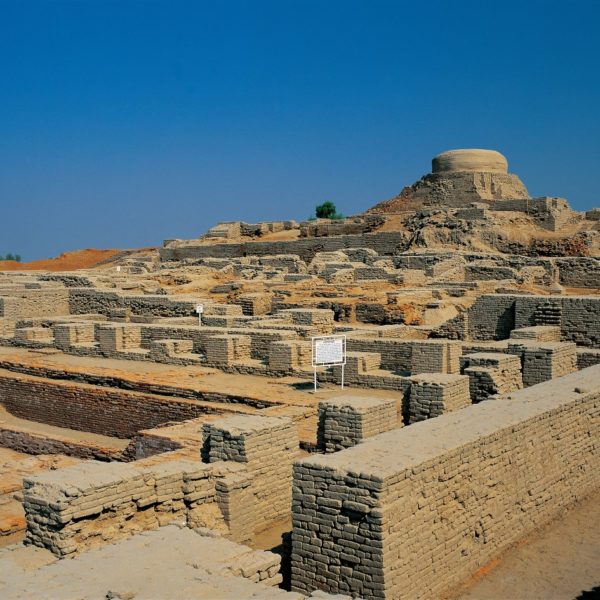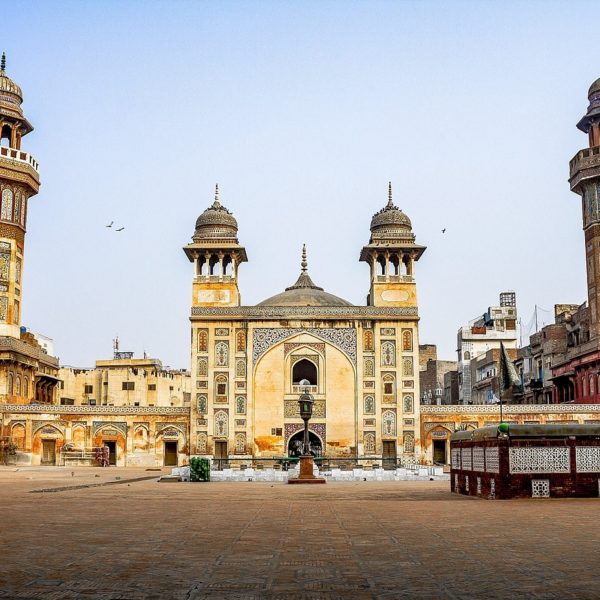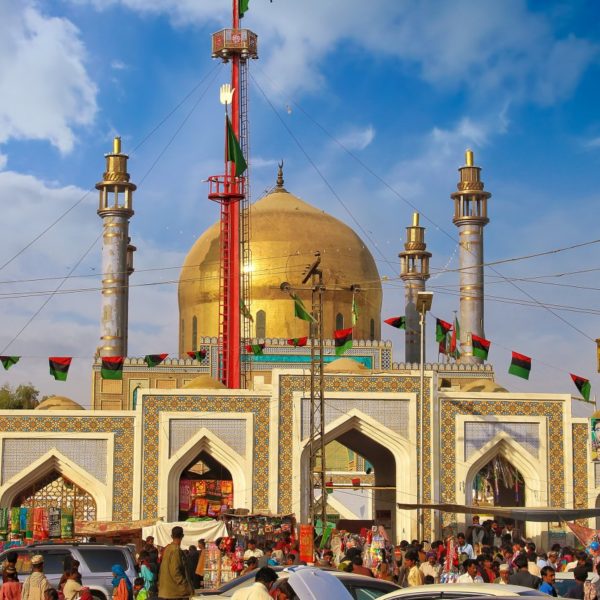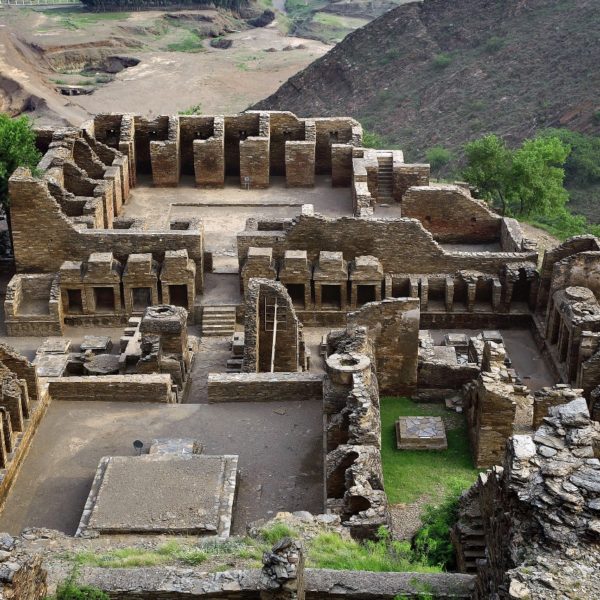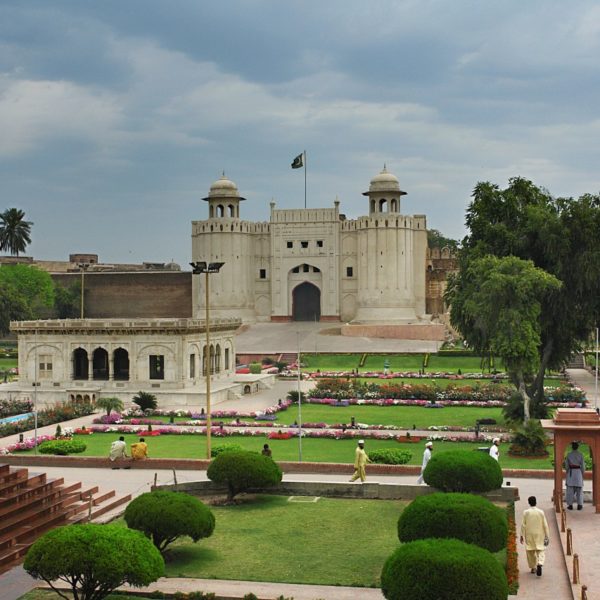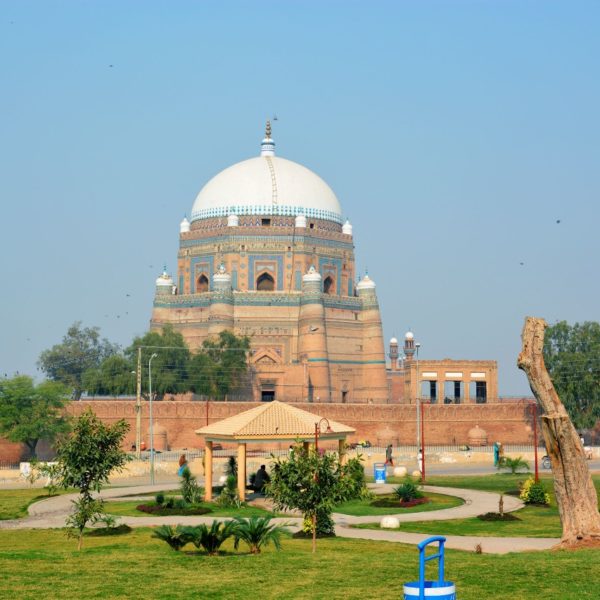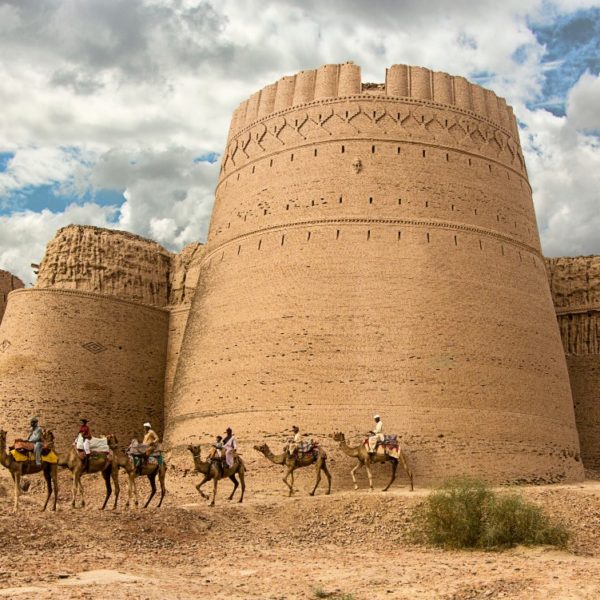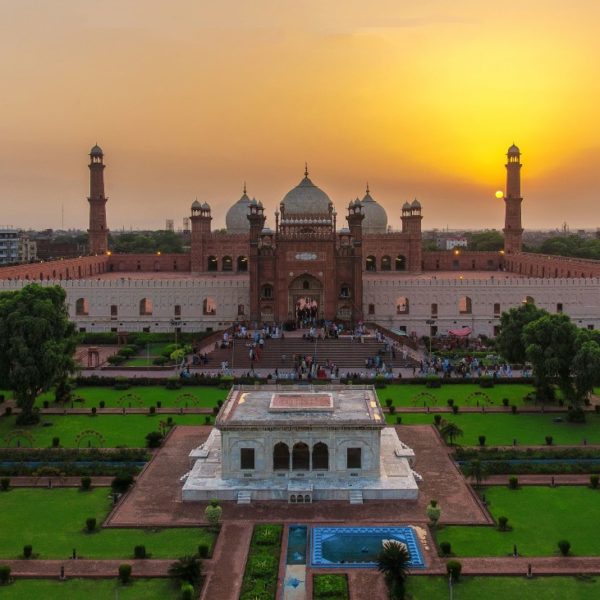Pakistan – Unknown History, 15 days
We invite you to take place in the trip to Pakistan during which we will learn about the generally unknown history of this area of Asia. We will visit archaeological sites of one of the oldest urban civilisations in the South Asia. Moreover, we will see the remains of ancient kingdoms where Persian was spoken but written with the Greek alphabet and most inhabitants were Buddhists.
Owing to our tour, we will be able to appreciate the great complexity and diversity of the culture and history of this part of Asia. Pakistan is also extremely interesting for its extraordinary present, which we will judge for ourselves when we visit – along with numerous pilgrims – the tombs of Sufi mystics and philosophers. We will go to vibrant markets where the rich kaleidoscope of people and commodities may make our heads spin. During this trip, we will not fall short of views that will remain engraved in our memory
itinerary
Flights arrive in Karachi usually early in the morning or at night. After arrival, visa formalities. Transfer to the hotel and, after a short rest, a late breakfast and an organisational meeting. In the morning, we will start visiting the city. We will visit the National Museum. During this visit, we will learn about the extraordinary history of Pakistan. Then we will visit one of the most recognisable buildings in Karachi – the Mohatta Palace. To see the sunset, we will go for an evening stroll to the Clifton beach which is one of the most important meeting and relaxation places for the Karachi inhabitants. Dinner in one of local restaurants.
D.
After breakfast, we will leave Karachi and set off for Hyderabad. The drive will take us about 4 hours. En route we will stop at one of the oldest cemeteries in the country, located in Chokandi. We will go for lunch to the area of the Keenjhar Lake. In the afternoon we will arrive in Hyderabad, the fourth largest town of Pakistan, located at the Indus River. Short visit to the town, dinner and night rest.
B. L. D.
After breakfast, we will head north, along the Indus River, to Larkana. En route we will visit a shrine built for a mystic, scholar and poet Shah Abdul Latif Bhittai who promoted tolerance and respect among followers of different religions. Next we will set off for one of the most important Sufi sanctuaries in Pakistan, devoted to the poet Lal Shahbaz Qalandar in the town of Sehwan Sharif. We will visit mosques and learn about the fascinating history of Qalandars. In the evening we will arrive in Larkana, have dinner and night rest.
B.L.D.
After breakfast, we will go to ruins of an ancient town called Mohenjo-daro. It is one of the oldest municipal settlements of the Indus civilisation. The town was founded more than 4000 years ago and was surrounded by a wall and fitted with a water supply and sewage system already at that time. We will visit remains of a bath house, the Chief’s House, the Pillared Hall and the Great Granary. In the afternoon, we will start our journey to Sukkur, where we will visit the Masoom Shah Minaret, more than 26 metres high, originating from early 17th century. Next we will see the Seven Sisters Sanctuary. According to folk tales, it is the resting place of Seven Friends who took an oath of celibacy and had never looked at a face of a man. Dinner and night rest in Sukkur.
B.L.D.
After breakfast, we will set off for a whole-day journey to Bahawalpur (390 km). The town is an important industrial and commercial hub. It is also a starting point for all kinds of trips into the Cholistan/Thar Desert. In the evening, we will go for dinner and well-deserved rest at the hotel
B.L.D.
In the morning, we will visit the Derawar Fort whose origins date back to the 9th century, which owes its current form to the alteration in the 18th century. Initially, it was a fortress belonging to local Hindu rulers. Interesting objects we may find there include catapult missiles found during excavations, over one thousand years old. Then we will visit the Noor Mahal Palace built in the second half of the 19th century. The Palace has a unique architecture – it combines different European styles. If we have enough time, we will also visit the centre of Bahawalpur. Dinner and night rest.
B.L.D.
After breakfast, we will drive from Bahawalpur to Multan – one of the oldest continuously inhabited towns in Asia. Multan is located on the Ćenab River which is a tributary of Indus. It was one of the most important centres of commerce on the way from Middle East to India. This town besieged by the army of Alexander the Great was the capital of the Trigarta Kingdom. We will see the Kohna Qasim Garden Fort whose foundations are more than 3000 years old. We will also visit the Mausoleum of Shah Rukn-e-Alam dating back to the 14th century and the tomb of Shah Shams Sabzwari Tabrez of the 13th century. Night rest in Multan.
B.L.D.
After breakfast, we will start our whole-day trip to Lahore. En route we will visit the archaeological site belonging to the town of Harappa that was founded more than 8000 years ago. Then we will drive to Lahore, the second largest city of Pakistan. Lahore is a cultural and artistic capital of Pakistan. After arrival, dinner and, depending on tiredness, a brief visit to the town of gardens.
B.L.D.
Whole-day sightseeing tour of Lahore. The town was at its prime when Ghaznavid and Great Mughals dynasties ruled. To start with, we will visit the 17th-century mausoleum of Empress of Mughal India Nur Jahan. Then we will go to Asif Khan and Akbari Sarai Mausoleums that are entered on the UNESCO World Heritage list. Next we will visit the Pearl Mosque (Badshahi Masjid) erected in 1673 by Mughal Emperor Aurangzeb. It is one of the most acclaimed sights of the city and the main attraction for tourists, personifying the beauty and greatness of the Mughal era. Before sunset, we will go to the border post in Wagah, where a ceremony of lowering of the flags and closing of the Indian-Pakistani border for the night takes place. We will see a drill show and a military parade on both sides. In the evening, dinner and night rest.
B.L.D.
Early in the morning we will start to head north to Islamabad. En route we will stop at the Katas Raj temple. It is a complex of interconnected Hindu temples whose origins date back to the period of glory of the Harappa civilisation. Then we will visit the spectacular Rohtas Fort. The Fort, build in the 16th century, has been preserved practically intact to this day, which is why it was entered on the UNESCO World Heritage list in 1997. In the evening, we will arrive in Islamabad. Dinner and well-deserved rest.
B.L.D.
After breakfast, we will start our journey to Peshawar, one of the oldest towns of Pakistan. It was founded more than 5000 years ago. The town was the kingdom capital in the period of Hellenic dynasties, and a cultural hub that combined Greek, Persian, Hindu and Buddhist influences. Peshawar was also the capital of the Buddhist Kushan Kingdom and also one of the most important cities of the Ghaznavid country and the Great Mughals Empire. While visiting the city, we will go to the spectacular Bala Hisar Fort. Moreover, we will take a stroll around the vibrant Kissa Khani Bazaar and see the breath-taking Mahabat Khan Mosque built in the 17th century. At the end of the day, we will visit the location of probably the largest and tallest (more than 120 m) Buddhist stupa in the world. Dinner, night rest in Peshawar.
B.L.D.
After breakfast, we will set off for the Swat town (290 km). En route we will visit well-preserved ruins of the Takht-i-Bahi Buddhist monastery. The monastery was built in the first century BC in the Indo-Parthian style. Then we will continue our drive to Mingora along the Swat River. We will visit the local museum with its rich collection of artifacts that evidence the long history of the Buddhist and Hindu cultures and religions within the area of contemporary Pakistan. Dinner and night rest in Mingora.
B.L.D.
After breakfast, we will leave Mingora and start our return journey to Islamabad. En route we will visit one of the most important archaeological sites in Pakistan. It is a town whose origins date back to more than 4000 years BC. Information about the town of Taxila can already be found in Hindu poems. In Persian times, it was a fortress that was besieged by Alexander the Great. There are still many remains from the times when Buddhism flourished in the area of today’s Pakistan, during the reigns of Indo-Greek dynasties and the Kushan Empire. We will see cloister ruins with numerous stupas and the museum with sculptures and statues discovered during excavations. Moreover, we will visit other archaeological sites in Mohra Moradu. In the evening we will arrive in Islamabad, have dinner and night rest.
B.L.D.
Whole-day visit of the sister towns of Islamabad and Rawalpindi. Islamabad has been the capital of Pakistan since 1963 but it is one of the earliest inhabited areas of the country. In comparison with Karachi, Hyderabad or Multan, Islamabad is a calm, green and clean city. We will visit the Faisal Mosque, the National Monument of Pakistan and the Lok Virsa Ethnographic Museum with its rich collection related to the material culture of the Pakistani people. In the afternoon, we will go to the vibrant market in Rawalpindi, with its colourful kaleidoscope of people and goods spreading in all directions. Farewell dinner in the evening.
B.L.D.
Depending on the departure time, transfer to the airport and flight home. We will reach our final destination airport on the same or next day.
B.
Practical information
- the length of the tour : 15 days in Pakistan;
- start of the trip: Karachi;
- end of the trip: Islamabad;
- the highlights of this expedition The most important attraction of the tour will be an attempt to get to know the extraordinary diversity and cultural richness of Pakistan. We will admire the remains of one of the most ancient civilisations of Asia – the ruins of Mohenjo-daro and Harappa. We will also visit the archaeological sites of Taxila and Takht-e-Bahi that are famous for multiple relics from the times when Buddhism flourished within the territory of contemporary Pakistan.During our tour, we will visit mosques and tombs of Sufi mystics which are important destinations of pilgrimages each year. The extraordinary diversity of the contemporary culture and traditions of Pakistan are largely a result of influence of numerous civilisations that occupied this territory.
No high level of endurance is required for taking part in our tour – it involves walking through towns and archaeological sites and museums, and also short hikes to viewpoints. Accommodation is planned in hotels of different standards, depending on location. The drives during our tour will be on minibuses and off-road vehicles. No long hikes or activities that require strenuous physical effort are envisaged during the tour. The itinerary was designed to enable best possible viewing of the places away from mass tourism routes, while meeting basic safety standards and ensuring comfort to the travellers. Bear in mind that the Islamic Republic of Pakistan is mostly inhabited by Sunni Muslims, which means the need to respect cultural differences and to adhere to the appropriate dress code.
Depending on the political situation, the length of the tour and the order of visited places may change. In a situation of a serious threat to travellers’ safety, the tour may be cancelled. We will keep you updated as to whether the expedition is possible.
Your passport must be valid for at least 6 months after the planned end of the tour.
Before departure, you must obtain a tourist visa online https://visa.nadra.gov.pk or at diplomatic posts of Pakistan.
Furthermore, you should take with you for the trip a photocopy of your passport (the photo page) and an additional ID document.
- Before departure, we recommend a consultation with a family physician and a tropical medicine specialist.
- Malaria prophylaxis is recommended but an infection is rather unlikely because of the climate, the trip dates and the itinerary of the planned tour.
- Vaccination against tetanus, diphtheria, viral hepatitis A and B and typhus is recommended.
- There is a risk of tuberculosis.
- We recommend visiting https://travelhealthpro.org.uk/countries.
- During our expedition, we will drink only bottled water. You should avoid ice in your beverages and eating raw or undercooked foods.
- At the visited places, only private healthcare exists (a visit cost is approximately USD 50).
- Because of difficult travelling and accommodation conditions and particularities of the country, good general health is necessary. Please take with you a first aid kit and a sufficient supply of your regular (prescription) medicines, if any. Some useful contents of the first aid kit:
The Islamic Republic of Pakistan is a country with relative political stability but there are still some armed conflicts in certain regions. This applies in particular to regions at the borders with Afghanistan and India. Moreover, there is a small but existing threat of terrorist attacks and a risk related to an unstable political situation.
However, trips to Afghanistan are possible and safe when conducted with the adequate precautions.
Owing to the good relations we have with local contractors, we keep following the news to be aware of any potential threats and safety risks. We also recommend you to read the latest news on the Foreign & Commonwealth Office website: https://www.gov.uk/foreign-travel-advice.
During the tour, please take seriously the instructions of our contractors, guides and tour leader.
It is very important to respect local customs and abide by local laws and regulations. You will receive the necessary information on an on-going-basis from your local guides and the tour leader.
The official currency in Pakistan is the Pakistani rupee (PKR). Currency exchange is possible at the airport, in banks, in some hotels and at foreign exchange points in the street. During the exchange, you must thoroughly calculate the received money and make sure what exchange rate is used. Using payment cards is not always possible. The best foreign exchange rate is for US dollars and euros. Please note that dollars should be printed after 2006.
For current foreign exchange rates see www.xe.com or install xe.com on your phone.
The official languages in the Islamic Republic of Pakistan are Urdu and English. Several dozen local languages are also spoken within the Pakistan territory. For self-guided tours, you must speak basic English or hire a local guide with a command of English.
The Islamic Republic of Pakistan is a multi-ethnic and multi-religious country. Most of the inhabitants are Sunni Muslims. Because of cultural considerations and for safety reasons, it is advisable to learn about the recommended dress code. Women are not required to wear headscarves at public places. However, this is necessary while visiting mosques and Sufi tombs. Clothes that reveal too much flesh are frowned upon – both in men and women. Men are not allowed to wear shorts and T-shirts. During official encounters, women do not give their hand to a man, and men do not give their hand to a woman. Discussions about political subjects should be avoided. Pakistani people are curious about the world and tourists and are ready to take up such conversations.
It is very important to respect local customs and abide by local laws. You will receive the relevant information from your local guide or the tour leader.
The tour dates are proposed in periods of the best possible weather conditions at the sites included in the itinerary. The best time for expeditions to Pakistan is the period between October and March. During the day, temperatures in the south of Pakistan (Karachi, Hyderabad) exceed +30°C and during the night they are higher than +20°C. In the north (Peshawar, Islamabad), temperatures reach +20°C during the day and may drop to +5°C at night. Rainfalls may be frequent in the north. High air humidity is possible in the south (Karachi).
For detailed information see https://www.meteoblue.com/en.
Mobile network coverage is available in most towns and villages. It is possible to purchase a local SIM-card with an Internet package. Before the trip, please enquire with your mobile network operator whether they have a contract signed with operators in Pakistan and what the prices of call and SMS roaming are. To avoid a nasty surprise, we recommend disabling mobile data usage.
- Wi-Fi is available at most hotels and restaurants.
- Power sockets of type C, E and F. Voltage 240 V, frequency 50 Hz.
- Additionally, we recommend taking a capacious power bank.

For climatic and cultural reasons, loose garments will be most appropriate: long trousers, long skirts, long-sleeved shirts, which can be easily washed and will quickly dry. The most comfortable footwear for the tour will be lightweight boots. Palladium brand boots are recommended. Wearing open sandals is possible. Hiking boots are not necessary.
The following are worth taking:
- sachet for documents and money
- wet wipes for body cleaning and antibacterial gels
- polar fleece jacket or warmer blouse, especially useful at evening and night times in northern areas of Pakistan
- head cover and sunglasses – mandatory, the sun is no joke!
- comfortable summer clothes, useful during practically the whole trip
- light T-shirts/shirts
- useful odds and ends: torch, Swiss Army knife, sewing kit (usually is not needed but is not heavy and does not take much place), chargers, mug (for special occasions); inflatable neck pillow, useful on the plane and during car rides; small wallet for the local currency; books to pass the time on flights and car rides
Price
Price: £ 2690 p/p
During the expedition, we will travel by minibuses and off-road vehicles. Depending on the daily agenda in the itinerary and the current situation as regards traveller safety, we will spend 4 to 10 hours travelling every day.The speed and transfer times depend on the road surface conditions, terrain characteristics and number and length of stops.
We are not able to guarantee a uniform accommodation standard at each of the planned sites during the stay in Pakistan. Our priorities are your comfort, safety and appropriate location. We always place emphasis on the support of local community when selecting the sites for our accommodation. In general, rooms will be assigned on the assumption of two people sharing a twin room (rooms with individual bathrooms). The surcharges for single rooms are quoted in the “Price” section.
Two overnight stays in hotels approximately corresponding to the 3- and 4-star standard are planned during the tour.
Meals are included in the tour price, as specified in the itinerary. B – breakfast, L – lunch, D – dinner. Breakfasts will usually be offered in hotels. We will go for lunches and dinners to local restaurants. The Pakistani cuisine is varied, similarly as the culture and history of this exceptional country.
For information about the local costs of living see https://www.numbeo.com/cost-of-living/.
Local and special guides in National Parks
All entrance fees and permits to visit national parks and reserves in the itinerary
Trip preparation, visa mediation, the invitation necessary to obtain a visa
Costs of the main flight to Karachi and from Islamabad
Costs of flight tickets are not covered by the tour price. BTP Adventure does not directly arrange and buy tickets for international flights. However, we may suggest the best connections and airlines. For this purpose, contact us by e-mail or call us.
Visa for the Islamic Republic of Pakistan
Insurance is not covered by the tour price. Having valid insurance is a condition for taking part in the trip. We recommend taking out insurance that will be appropriate for the planned itinerary and for your individual state of health and needs. Please send us the proof of your insurance contract.
You can purchase insurance on your own on the website of Axa or any other insurance company: https://www.axa.co.uk/travel-insurance/.
BTP Adventure may help you obtain adequate insurance cover. If you want our help, please contact us.
Meals other than those listed in the final itinerary.
Personal expenses and souvenirs.
Surcharge for a single room: 550 £
The price does not includes the cost of tips and porters’ fees.
supplementary payment for the additional accommodation In the case of arrival or departure on a different date,
We will keep updating the detailed information on the safety and final itinerary of the tour. Before you decide to submit the booking form, please learn about the current political and sanitary situation in Pakistan.
The planned expedition is an exclusive proposal prepared on the basis of our experience and knowledge of the local peculiarities and major sightseeing attractions of Pakistan.
We are committed to ensure the best possible and safe and, as far as feasible, comfortable travelling through this little-frequented and extremely interesting country with a fascinating history.
Depending on the political situation, the length of the tour and the order of visited places may change. In a situation of a serious threat to travellers’ safety, the tour may be cancelled. We will keep you updated as to whether the expedition is possible.
It is possible to combine this tour with trips to Iran.
With any questions please contact BTP ADVENTURE
2690 £ Per Person
It is possible to combine this tour with trips to Tajikistan or Iran.

